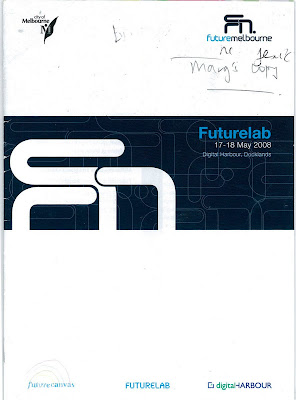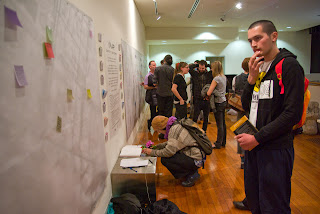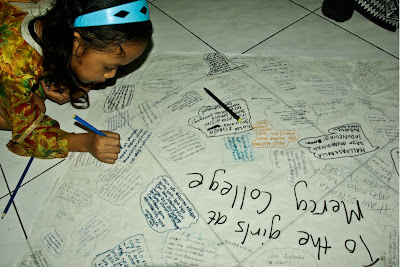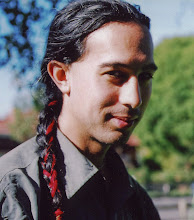City of Melbourne, Melbourne, 2008
FutureLab was an innovative two day workshop that engaged youth in the ‘FutureMelbourne’ planning process for the City of Melbourne.
In 2007 I joined a group that my friend Jack Fuller started, called ‘Project for a 1000 year plan’. This aims of the group formed around running a series of informal seminars around extremely long term planning. Topics ranged widely, from space travel, terraforming, energy flows and supply, geological time, to spirituality, future visions, planetary awakening, conflict and cooperation. The conversations emerging from these seminars were incredibly stimulating and frequently shook all of us out of our existing positions and views, while tempting us with new ones.
Aside from just discussing future planning, we wanted to influence it! An opportunity came around when we made links with the local government who were doing public consultation on its 10 year plan, ‘FutureMelbourne’. Myself and some other group members took the opportunity to organise a two-day interactive forum for youth to get input into the plan. We lead the participants around the city in small groups and asked them to re-imagine their urban environment. They then were given piles of art materials and industrial offcuts to shape their ideas for the city in free form, whilst redrawing city maps. In the second day we supported them to hone their ideas and turn them into projects and proposals that could be pitched to the government and other organisations.
The workshop was a great success with 75 delegates, alongside scores of volunteers facilitators and Council staff. Over 90% of participants rated the event as ‘Good’ or ‘Excellent’.
The Council learned that:
- Younger peoples’ aspirations align well with the Future Melbourne vision, but emphasise that the City’s livability should be retained and enhanced whilst pursuing sustainability (rather than losing sight of one for the other); and
- Specific suggestions, such as the desire for a more radical approach to greening the city and need for greater emphasis on the possible synergies and conflicts between goals (e.g. addressing how a 24hour city will also be a safe city, as well as actively supporting environmental education as a part of ensuring prosperity).
More info on the Council's
website
View FutureLab
report
























































